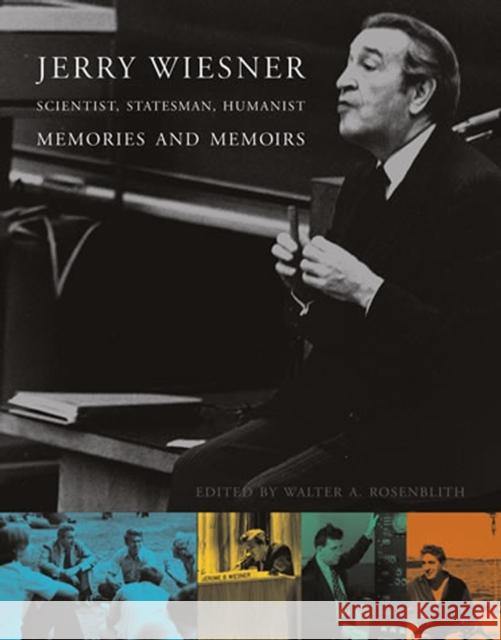Jerry Wiesner, Scientist, Statesman, Humanist: Memories and Memoirs » książka
Jerry Wiesner, Scientist, Statesman, Humanist: Memories and Memoirs
ISBN-13: 9780262528481 / Angielski / Miękka / 2003 / 636 str.
The recurring theme in Jerry Wiesner's varied and distinguished career was what Senator Edward M. Kennedy calls in the foreword to this book a "passionate involvement to make a better world, and a safer world." His odyssey as a public citizen included work as an acoustician for folklorist Alan Lomax in the Library of Congress, research at MIT's Radiation Lab and at Los Alamos, service as President John F. Kennedy's Special Assistant for Science and Technology, and his years at MIT as professor, dean, provost, and president. At Los Alamos he received what he called "a valuable education on issues that were to occupy a large part of my life." The lessons learned informed his later work on nuclear disarmament; he was a pivotal adviser on both the 1963 partial Nuclear Test Ban Treaty and the 1972 ABM Treaty and an early member of the Pugwash group, an organization of scientists from both sides of the Iron Curtain. His many accomplishments as president of MIT similarly reflected his conviction that science and technology cannot be separate from society.Jerry Wiesner had long planned an autobiographical book that would combine personal experience and historical interpretation, covering the wide range of interests that he compared to "the many parts of a giant jigsaw puzzle," but the commitments of his postretirement life and a serious stroke in 1989 kept him from completing it. Jerry Wiesner, Scientist, Statesman, Humanist, conceived by Wiesner's longtime colleague and friend Walter Rosenblith, fills the gap between the unwritten autobiography and the still-to-be-written biography, assembling reminiscences of Wiesner by such friends as Alan Lomax, Theodore C. Sorensen, and John Kenneth Galbraith, and writings by Wiesner himself, including the autobiographical pieces that would have been the basis of his own book.











